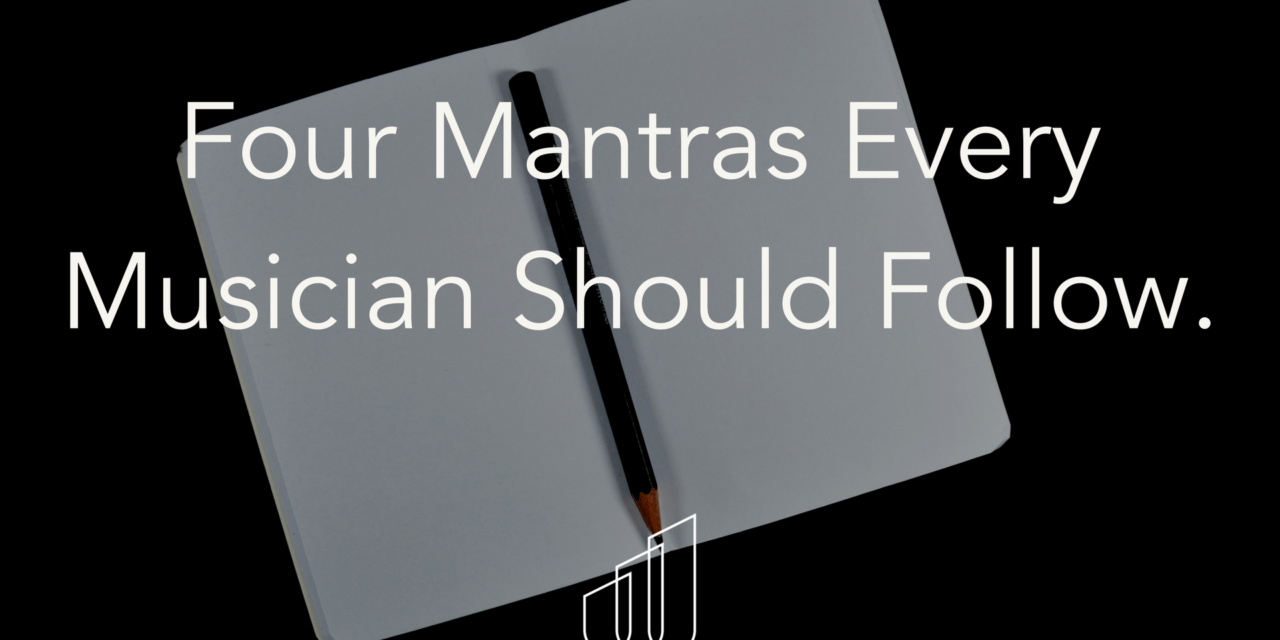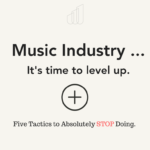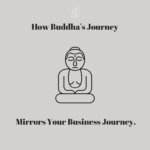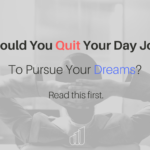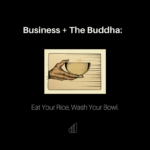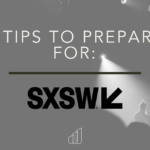In keeping up with my Zen and simplicity theme (yeah, I’m still making amends with that buzz-term), let’s talk about mantras.
Mantras can take on a wide variety of roles in your personal and spiritual development — and they’ve also taken up space in the business world, too. Whether it’s the cheesy Michael Scott-esque motivational posters hanging in your office, a book of wise proverbs, or a self-help book — there’s nothing wrong with a self-affirming phrase or some solid advice to follow.
Over my years of working with artists, labels and management teams, I’ve picked up a few mantras of my own. So let’s jot ’em down and hope that maybe you can utilize them for your own career, too!
“Don’t half-ass a bunch of things, when you can whole-ass one thing.”
I’m not big on pop culture references in my posts, but this derivative of a Ron Swanson quote has always stood out to me. Sure, it’s pretty straight forward, but it includes the word “ass” which makes it more fun, right?
Basic or not, this phrase comes to mind a lot when working with artists — and sure it can be applied to many aspects of a musician’s career, but I often use it when it comes to social media.
In my initial consultations with artists, most of them give me a laundry list of social media outlets that they are on: Facebook, Instagram, Twitter, Tumblr, Pinterest, SnapChat (..then it gets interesting) ReverbNation, Myspace..
And without fail, there’s always a few mentions of “..but we should probably post more” and “..well, it hasn’t been updated in ages..”.
The issue with these ghost pages and bare outlets is that fans, media, labels and other influencers are simply turned off by outdated channels. It gives off the impression that you’re lazy and just don’t want to keep up with it.
Not too long ago, I was working with an incredible R&B artist. She just had some chart success and some news coverage. However, after Googling her name, among the top results wasn’t her website, or even her recent news mentions — but an outdated Myspace from 2008. Complete with embarrassing mirror selfies, and unmastered bathroom recordings.
This was easily fixed by deactivating the account, and ensuring her official website was SEO optimized, but it goes to show that if you aren’t using an outlet, get rid of it! Because it may come back to haunt you. Now, sure, it won’t hurt anyone to get rid on an antiquated 2008 Myspace page, but what about that Instagram that you swore you were going to keep up with but never got around to? That page is floating around the internet, too–and it’s certainly more important than a MySpace page.
So, should you get rid of it?
Yes. Delete that, too. If you absolutely cannot keep up with it (double emphasis on that “cannot”)… then delete it.
Could you benefit from it? YES! Would I recommend you utilize Instagram as an artist? YES! Any relevant channels for that matter? Of course! But if you’re going to have an empty, half-assed outlet on display, that’s going to do far more damage than good.
That being said, would it be better if you just got it together and learned how to give a little love to all your channels? Yep.
The goal for every artist is to have a robust digital web-presence. That means that you do need to be on various outlets, each one showcasing your brand in different ways. However, if you’re still learning your brand, and still developing your digital profile, feel free to ease-in to other channels as you see fit.
Often divvying up your time trying to increase reach and growth on all outlets at once can be disastrous, and often leads to artists giving up altogether. Take your time, and integrate slowly.Find out what works for your brand, develop your system, and then expand your brand naturally. Do what works for you.
Maybe you can put everything into your entire presence right away, and if so, great! But if not, take your time to ensure that your overall presence isn’t suffering.
“Quality Over Quantity.”
While it’s very important to have consistent content, you have to be balanced, too. It’s very possible to go over-board and “spam” your fans.
I often have artists or labels compare themselves when it comes to posting frequency. For instance, Atlantic Records is posting every hour on Twitter — we need to do that, too!
However, you have to realize it’s more about content than the frequency of posts.
Atlantic has dozens of artists and sub-labels, each with their own songs, branding, tour info and more that they can further push online. A small label with only 4-5 artists can only post with the limited content that they have.
We don’t even have to use major artists or labels for this example. If you’re a touring artist with an album out, and a new single on the way, you have so many content opportunities! Photos from shows, links from the album, videos on the road, snippets and teasers for the new single.
But on the flip side, if you’ve been solitary for a while, not on the road, not in the studio — your content possibilities are a bit more slim, so you’re going to have to be more creative: vlogs, graphics, covers, increase the interaction level a bite more, and so on.
You have to work with what you have, so instead of posting years-old SoundCloud links and dated gig photos only to pass them off as a #TBT, make new quality content!
A fan would rather see 1-2 pieces of exciting new content a month, instead of the same streaming link 3-4 times a day.
Quality over quantity in your social media channels is essential. Just like with food, drink and Mahayana Buddhism, it’s everything in balance and moderation. This includes your digital profiles. Posting too little will make you come off as inactive, and too much will make you come off as over-eager.
Find your balance, stick to it, and enjoy having consistency.
Your Digital Profile: It’s All Interconnected (but separate, too).
I see a lot of artists get caught in the rut of “I need content” rather than, “I need value”. Some simply link their Facebook with Twitter so their feed becomes a string of half messages and URL’s, or other artists simply re-enter the same info on each channel.
While you should always post news, content and updates on all of your channels — don’t think of your channels as a one-size-fits-all type of deal. Each channel should have it’s own voice, message and serve it’s own purpose in your overall digital profile.
Instead of thinking of your brand and social channels as different animals, think of it as one body with various parts. They’re different, serve different purposes but they’re still “you”.
Take a moment to think about how each channel plays into your own brand. It’s not about blasting a message on multiple channels — it’s how each channel plays into your overall voice and furthers your growth.
So, maybe Facebook is your go-to outlet for more “branded” content because of their user-friendly ad manager, then Twitter is your trusted source for fan interaction, Instagram is your outlet for showing off that personal side of your brand and so forth.
Sure — every channel should serve the same purpose (furthering your brand), but they should all have their own quirks. This makes people want to see more of you on that channel. Never have a channel just to be on it, make it have it’s own voice.
It’s more fun to enjoy something than hopelessly bash it. Especially with music.
Throughout college I took music-industry courses. They were incredible, but there was this recurring theme that ran through it: Mainstream/current music sucks.
This is my biggest pet-peeve of the music industry. Despite the myths, there was no “golden age” of music — go check out the Billboard Charts, even in the 60’s-90’s, silly pop-driven songs ruled the charts. Music is the same as it’s always been — a mix of intricate and poetic songs, silly pop records, and everything in between.
I say this, because artists often forget that music is simultaneously two things: fun but a business.
While you might not dig the latest Miley Cyrus or Migos track, there’s someone out there who does. There’s a market for it, who enjoys it. That doesn’t mean that they are less of a person, or that the “industry is dying”. It just means that the music connects with them on some level. Likely not a deep intellectual level, but it vibes with them. And you can’t be mad at that.
Learn to enjoy music or at the very least, to respect it. Pop isn’t killing the industry, but our attitudes might be. Have fun with music, turn up your speakers, and enjoy. And respect the fact that people enjoy and love the business that you work in.
If you need help with your music-marketing, or simply want me to check out your digital profiles: Contact Me!

